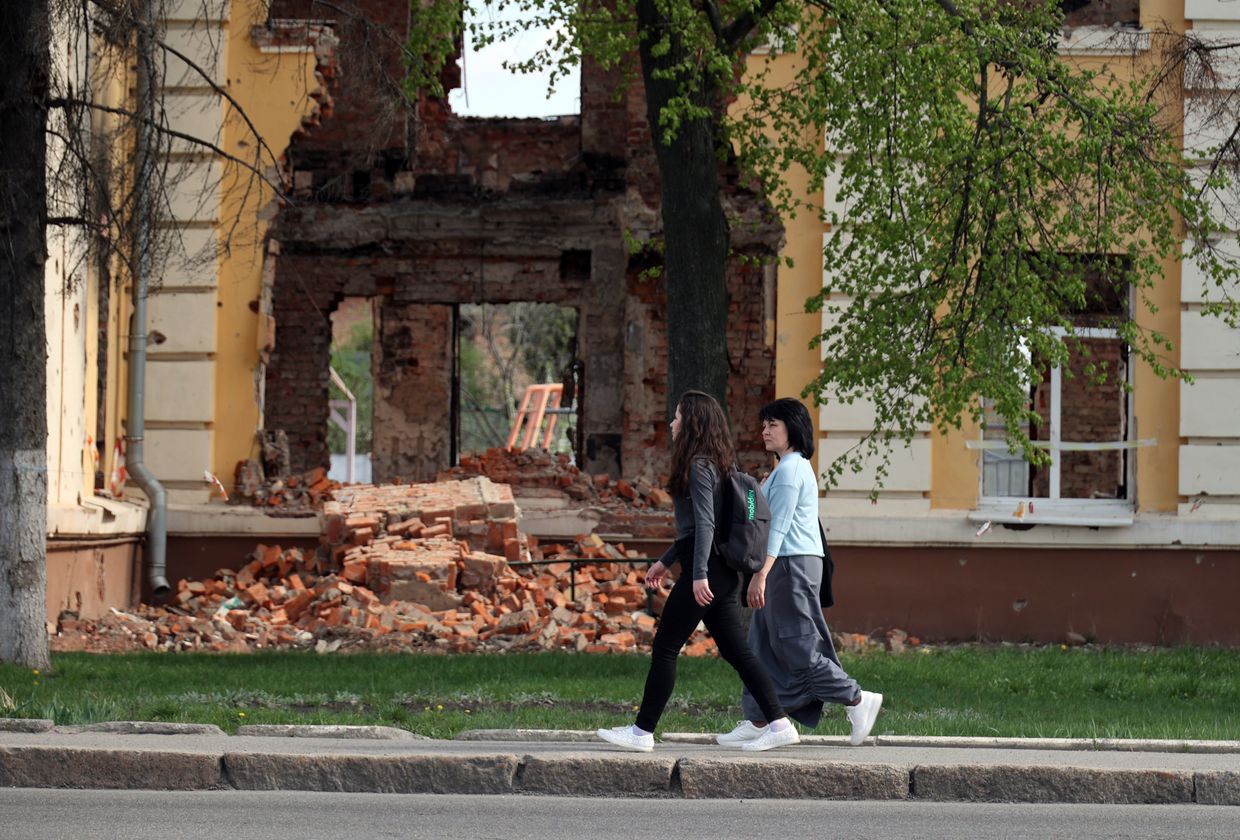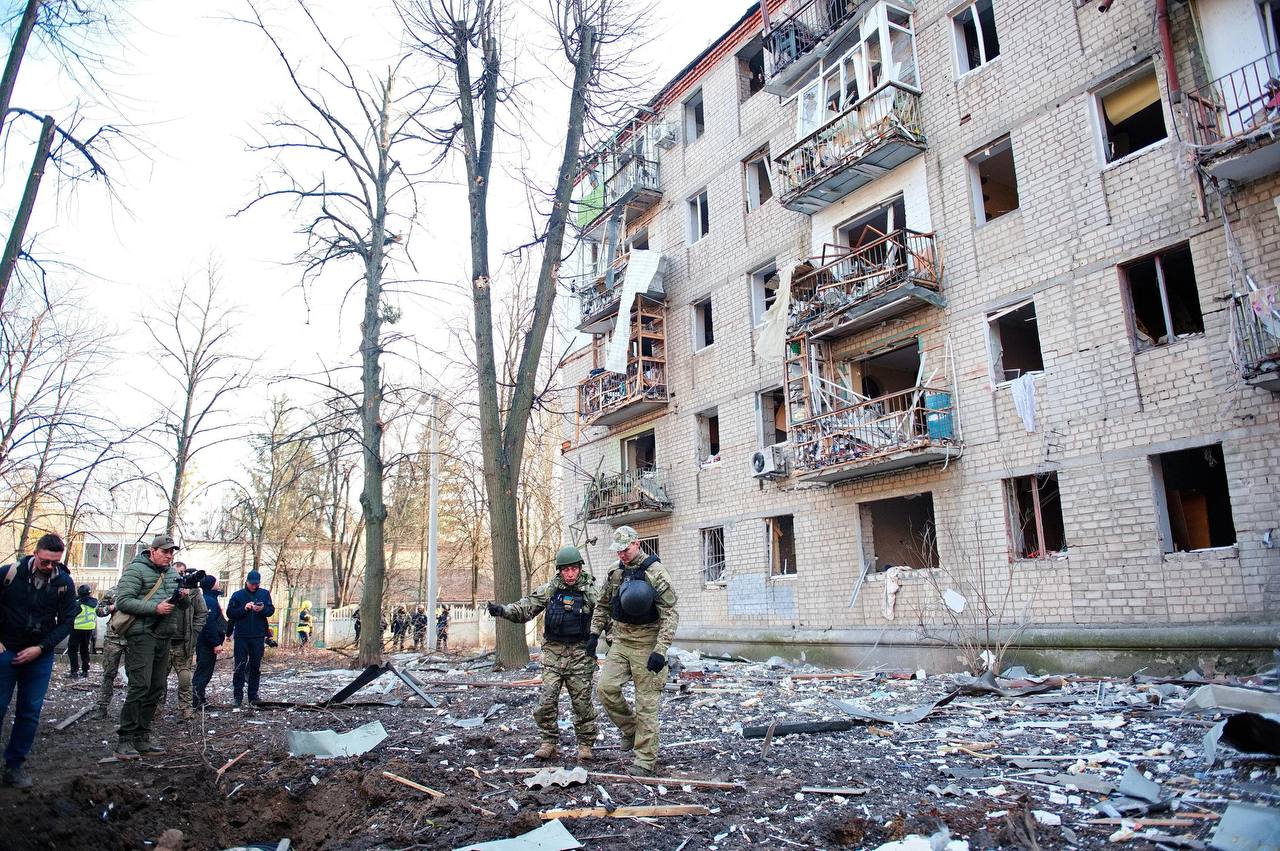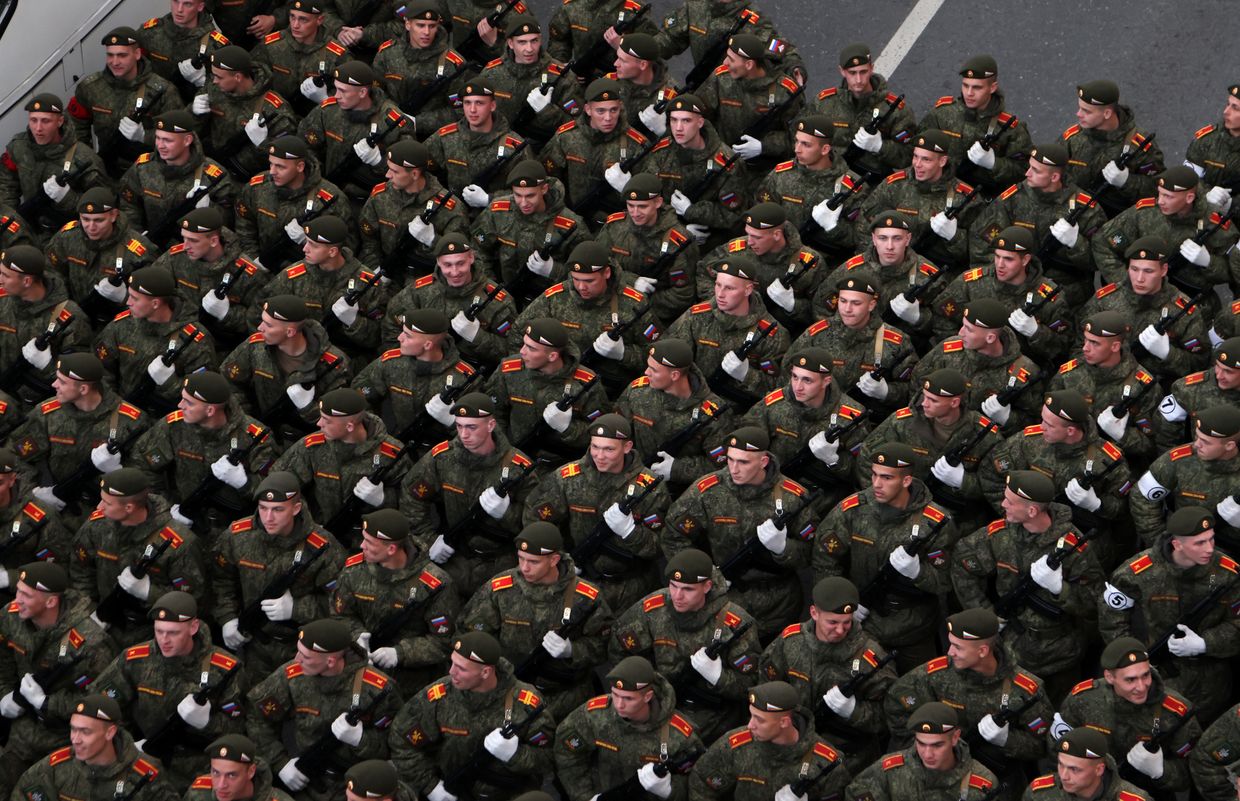ISW: Russia attempting to create 'outsized panic' in Kharkiv, force 'mass exodus' of civilians

Russian forces and Kremlin propagandists are conducting a combined effort to destroy the city of Kharkiv and cause a mass exodus of civilians, the Institute for the Study of War (ISW) reported on April 22.
Moscow has recently intensified attacks against Kharkiv using missiles, glide bombs, and drones to destroy infrastructure and kill civilians.
These are being combined with information operations designed to sow "outsized panic" among the population while fuelling rumors of an impending Russian ground offensive to take the city, the ISW said.
"The Kremlin is conducting a concerted air and information operation to destroy Kharkiv city, convince Ukrainians to flee, and internally displace millions of Ukrainians ahead of a possible future Russian offensive operation against the city or elsewhere in Ukraine," it added.
Kharkiv is at particular risk because of its proximity to Russia, lying less than 30 kilometers from the border.
Russian Foreign Minister Sergei Lavrov said on April 19 that the city "plays an important role" in President Vladimir Putin’s idea of establishing a demilitarized "sanitary zone" in Ukraine, ostensibly to protect Russian border areas from Ukrainian strikes and incursions.
However, the ISW also assessed the likelihood of a successful Russian ground offensive against Kharkiv as "very low," provided Ukraine receives renewed US military aid swiftly.
In the latest attack on Kharkiv, Russian forces struck the city’s television broadcasting tower on April 22, causing the top half of the mast to collapse.
"There are interruptions in the digital TV signal at the moment," the governor said. The State Special Communications Service reported that the tower's structure was "partially damaged," with work underway to restore broadcasting signals.
The attack may have been intended to invoke memories of a similar strike on a TV tower in Kyiv in March 2022 and to "create panic among Ukrainians during another challenging moment of the war," the ISW said.
It added reports that Russian military bloggers heavily amplified the attack, framing it as a sign residents should leave the city "while they still can."
At the end of March, Russia destroyed all the electrical substations in Kharkiv, leaving Ukraine's second-largest city without a stable power supply.
"The Russian military command may attempt to destroy Kharkiv City with air, missile, and drone strikes and prompt a large-scale internal displacement of Ukrainian civilians if the Russian military determines that it cannot successfully seize the city with ground operations," the ISW concluded.
"Continued timely US and Western military assistance, particularly the provision of air defense systems and missiles, will be critical to Ukraine’s defense of Kharkiv City," it added.
Western officials do not believe that Russia has the capability to launch a new attack on Ukraine's second city of Kharkiv "without a major replenishment of Russian troops," Bloomberg reported on April 16.
In late March, President Volodymyr Zelensky said another major Russian offensive may come at the end of May or in June but added that "Kharkiv is protected."
Ukraine's military intelligence agency (HUR) said earlier in April that news of a potential attack on Kharkiv was "part of a Russian psychological operation," adding that there were no signs of Moscow preparing new attack formations to carry out a ground offensive.














